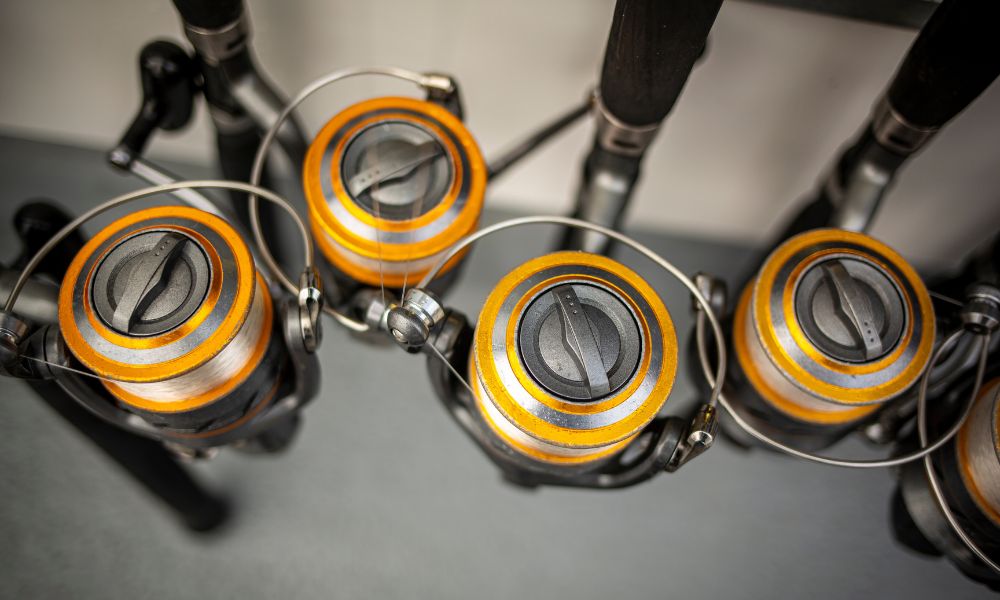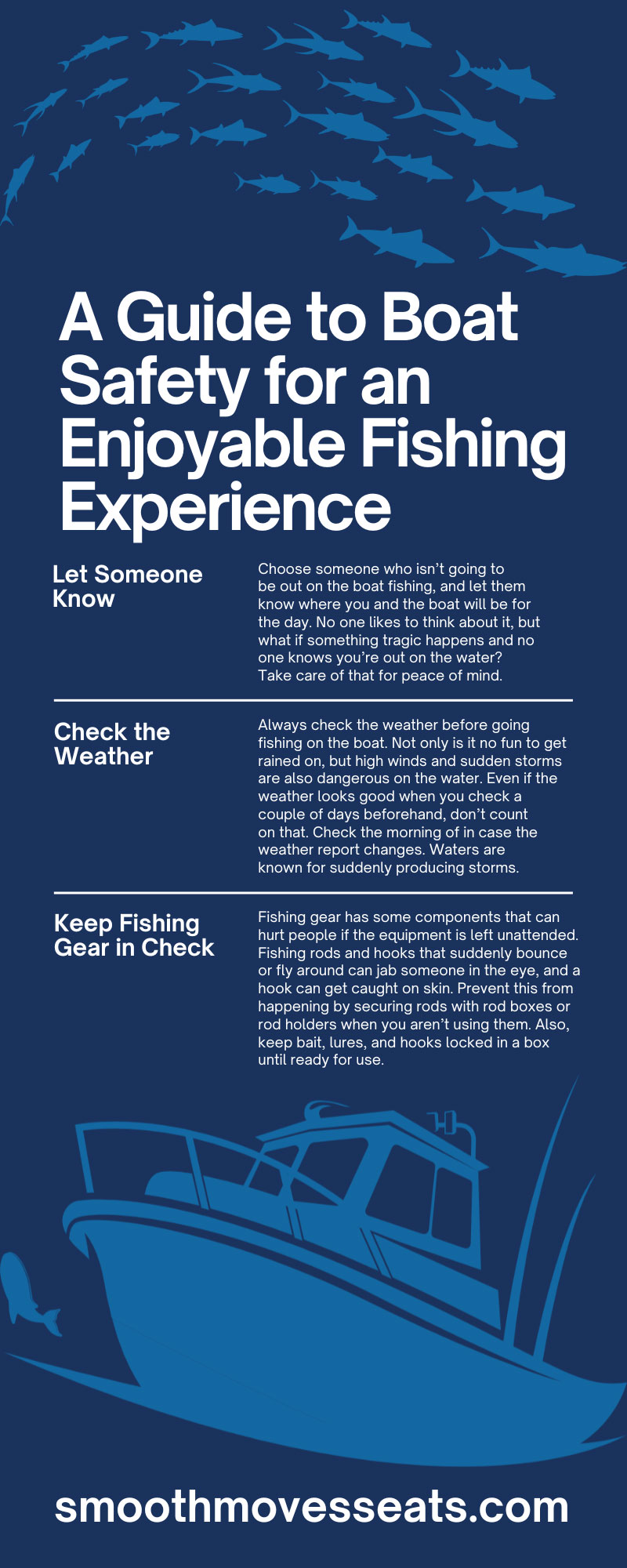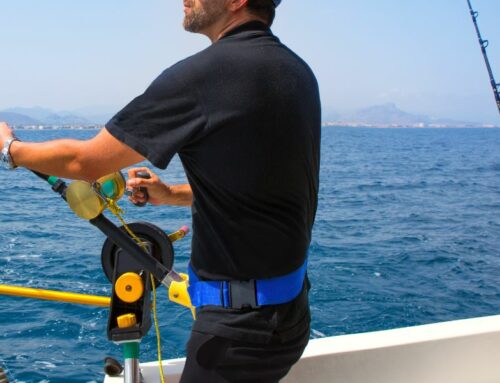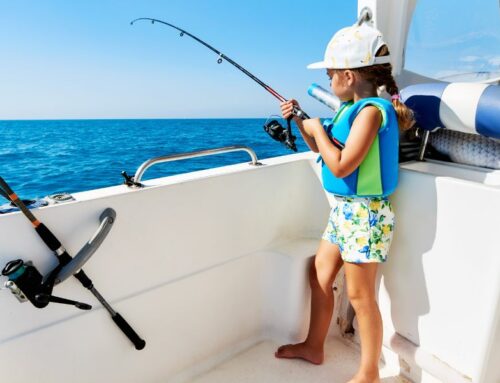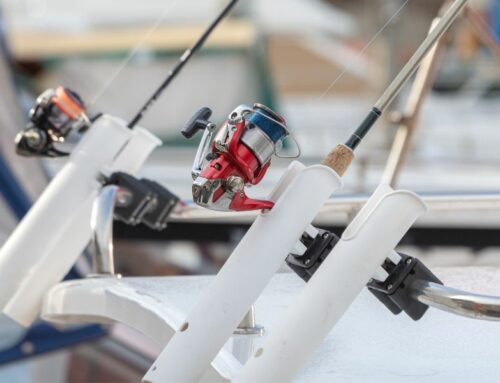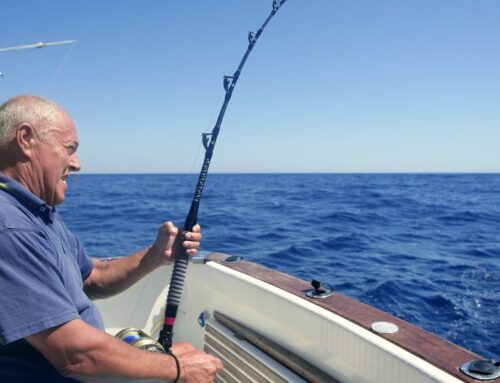Plenty of boating accidents occur every year, making it essential to understand boat safety if you’re heading out on the water. Nothing will ruin a great day of fishing like a scary accident. While some accidents stem from excessive alcohol consumption or other unwise choices, other accidents stem from not being prepared or not performing a safety check before heading out. Follow along as we discuss a guide to boat safety for an enjoyable fishing experience.
Rules of the Water
Before even planning a day of fishing on the boat, make sure everyone going understands both the national and regional rules of the water. On their website, the Coast Guard keeps an updated version of the Convention on the International Regulations for Preventing Collisions at Sea. These rules are the backbone of all other “rules of the road” while boating.
The body of water you go out on will also have its own set of rules, such as no-wake areas and speed and alcohol limits.
Let Someone Know
Choose someone who isn’t going to be out on the boat fishing, and let them know where you and the boat will be for the day. No one likes to think about it, but what if something tragic happens and no one knows you’re out on the water? Take care of that for peace of mind.
Double Check Safety Gear
Some gear should always be on the boat, especially certain safety gear. Here’s a list of must-haves for boat safety and an enjoyable fishing experience:
- Life jackets
- Throwable flotation devices
- Signaling devices (sound and visual)
- Fire extinguishers
- Medical kit
- Anchor
- Buckets to bail water
- Radio to call for help
- Cell phone
- Oars and paddles
- Flashlight
These are necessities when out on the water; however, you can always add more things for extra safety. Make sure each item is on the boat and in working condition.
Check the Weather
Always check the weather before going fishing on the boat. Not only is it no fun to get rained on, but high winds and sudden storms are also dangerous on the water. Even if the weather looks good when you check a couple of days beforehand, don’t count on that. Check the morning of in case the weather report changes. Waters are known for suddenly producing storms. Also, have something on board, such as a cell phone or radio, so you can continue to tune into the weather and hear any warnings.
Know Your Limits
A day on the boat can wear you out. The hot sun, brisk wind, and glare of the water all take their toll after a while. Avoid some exhaustion by taking turns performing duties on the boat. However, if you or anyone else start to feel exhausted, headachy, or just not right, it’s time to head home.
Keep Fishing Gear in Check
Fishing gear has some components that can hurt people if the equipment is left unattended. Fishing rods and hooks that suddenly bounce or fly around can jab someone in the eye, and a hook can get caught on skin. Prevent this from happening by securing rods with rod boxes or rod holders when you aren’t using them. Also, keep bait, lures, and hooks locked in a box until ready for use.
Inspect the Boat
To ensure boat safety for an enjoyable fishing experience, you must know what kind of shape your boat is in. Hopefully, you take excellent care of your boat on a regular basis. Still, before you head out for a full day of fun and fishing, go through your boat inspection list to make sure it’s ready. Here are some tasks that should be on that list:
- Check for cracks around the body of the boat.
- Make sure you have a full tank of gas.
- Look for any water and gas separation; this is a sign water may be in the tank and could cause engine problems.
- Check the oil level, and look for signs that water has seeped in.
- Look for any corrosion around the engine.
- How’s the power? If you bring your boat on a trailer to put it into the water, you don’t want to learn when you get there that the boat isn’t starting. Check the power before you leave.
- Test the bilge pump.
- Grease up the steering if it’s looking rusted.
- Turn the lights on and off to make sure they work.
- Give the boat a clean fuel filter if it’s clogged.
Don’t head out on the water without going through your inspection list. Remember, your boat is often on the water, and water causes corrosion and other issues when it seeps in.
Follow Fishing Regulations and Laws
Just as all states have their own boating regulations and laws, they have the same for fishing. Everyone on the boat should be well versed in what those rules are for the area you are fishing in. Common state laws or rules specific to an area may be a required fishing license, a limit on the number of fish you can keep, or a size limit. Many places enforce a catch-and-release rule, meaning you can’t keep any of the fish you catch.
Understand Fishing Etiquette
You and your friends won’t have a good time fishing if one of you doesn’t understand fishing etiquette. Some simple acts of respect help avoid mishaps and accidents. The following is a list of fishing etiquette rules to follow to keep everyone safe and happy.
- Keep the volume down. Other people may be fishing and don’t want you to scare the fish away.
- Stay out of the way. When others are fishing, getting in front of them can lead to injuries from hooks and rods.
- Handle fish properly. Some fish can hurt you if you aren’t careful, and taking one off a hook is nothing to take lightly.
- Respect the boat and the passengers.
- Adhere to the fishing seasons.
Fishing is an excellent hobby, and going out on a boat to enjoy it is fulfilling and fun. Prepare for an enjoyable day with a boat you checked, fishing gear you stored and handled properly, and a crew that is respectful toward the boat, water, and fish.
At Smooth Moves, we are all about boating and keeping our customers safe and comfortable. We offer the highest-quality boat seat shock absorbers for an extra smooth ride for yourself and your passengers. Whether you are joyriding or fishing all day long, you’ll have a hard time wanting to come in off the water with our suspension system. Contact us, and let’s talk about how we can take your boating experience to the next level!



